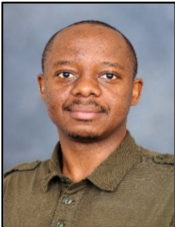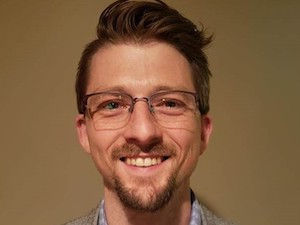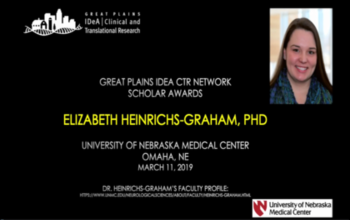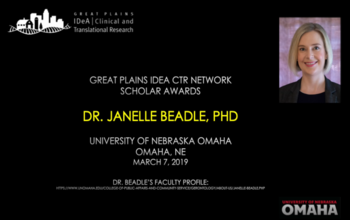
Graduate Scholar Series: Daniel Rasetshwane, PhD
Daniel Rasetshwane, PhD, is the Director of the Auditory Signal Processing Laboratory at Boys Town National Research Hospital. He is also a recipient of the 2017 Great Plains IDeA CTR Scholar Award. You can find more information on his study HERE.
The Graduate Scholar Series highlights Scholar awardees who have graduated from our program by successfully obtaining extramural funding. These interviews share their research, progress, words of wisdom, and how the program has been beneficial to them.
GP IDeA-CTR: Can you briefly explain the nature of your study?
Daniel Rasetshwane: The goal of my research study is to improve hearing aid benefit and increase satisfaction for individuals with hearing loss by optimizing hearing-aid fitting methods, and hearing-aid signal-processing strategies.
GP IDeA-CTR: How did the Scholar’s Program help you?
Daniel: The Scholar’s Program helped me secure funding for research participants and a research assistant. Thanks to the funding we were able to collect data from 45 participants.
The Program also supported my travel to the National IDeA Symposium of Biomedical Research Excellence (NISBRE) meeting, as well as a Scholar visit to Dr. Mark McCourt’s lab at North Dakota State University. Both events provided opportunities for networking.
Lastly, the CTR 901 Seminar in Clinical Translational Research Grantsmanship course, along with other 1-day grant workshops offered via the Scholar Program, provided excellent training in grant writing.
GP IDeA-CTR: What was the most beneficial part of the program that led you to graduating?
Daniel: Training in grant writing offered through the CTR 901 Seminar in Clinical Translational Research Grantsmanship course, and the exercise of preparing the Scholar grant proposal.
GP IDeA-CTR: What funding did you receive and how will it help move your research forward?
Daniel: I received an R01 from the NIH to fund research to further our understanding of suprathreshold hearing deficits that cannot be explained by current clinical assessments of hearing health. This line of research represents a rethinking of the research question for the Scholar grant. Instead of asking “How do we make hearing aids better?”, we asked “How is it that some people struggle more than others with communication in noisy background?”
GP IDeA-CTR: Any words of wisdom for future Scholars?
Daniel: I would strongly encourage anyone eligible for the Scholar program to consider submitting an application. The program is a such great opportunity. First, your chances of getting the Scholar grant are much higher compared to those of an NIH investigator-initiated grant (R01, R03, R21). Second, the support you get from the Scholar Program and the Great Plains IDeA CTR team to help you develop is wonderful.
GP IDeA-CTR: What impact will your studies have on communities in the near future?
Daniel: We have been able to share our results via presentation and publications. We hope these results will inform interventions for individual who experience hearing problem that cannot be explained by current clinical test.
GP IDeA-CTR: What sort of results have you seen in your study so far?
Daniel: We have demonstrated that suprathreshold hearing deficits are not only caused by injuries to the peripheral auditory system, the prevailing idea when we started our work. Rather, a framework that encompasses the entire auditory system and considers influences of cognition is required to understand these deficits. Our results thus far are described in five publications, and additional manuscripts are under preparation.



